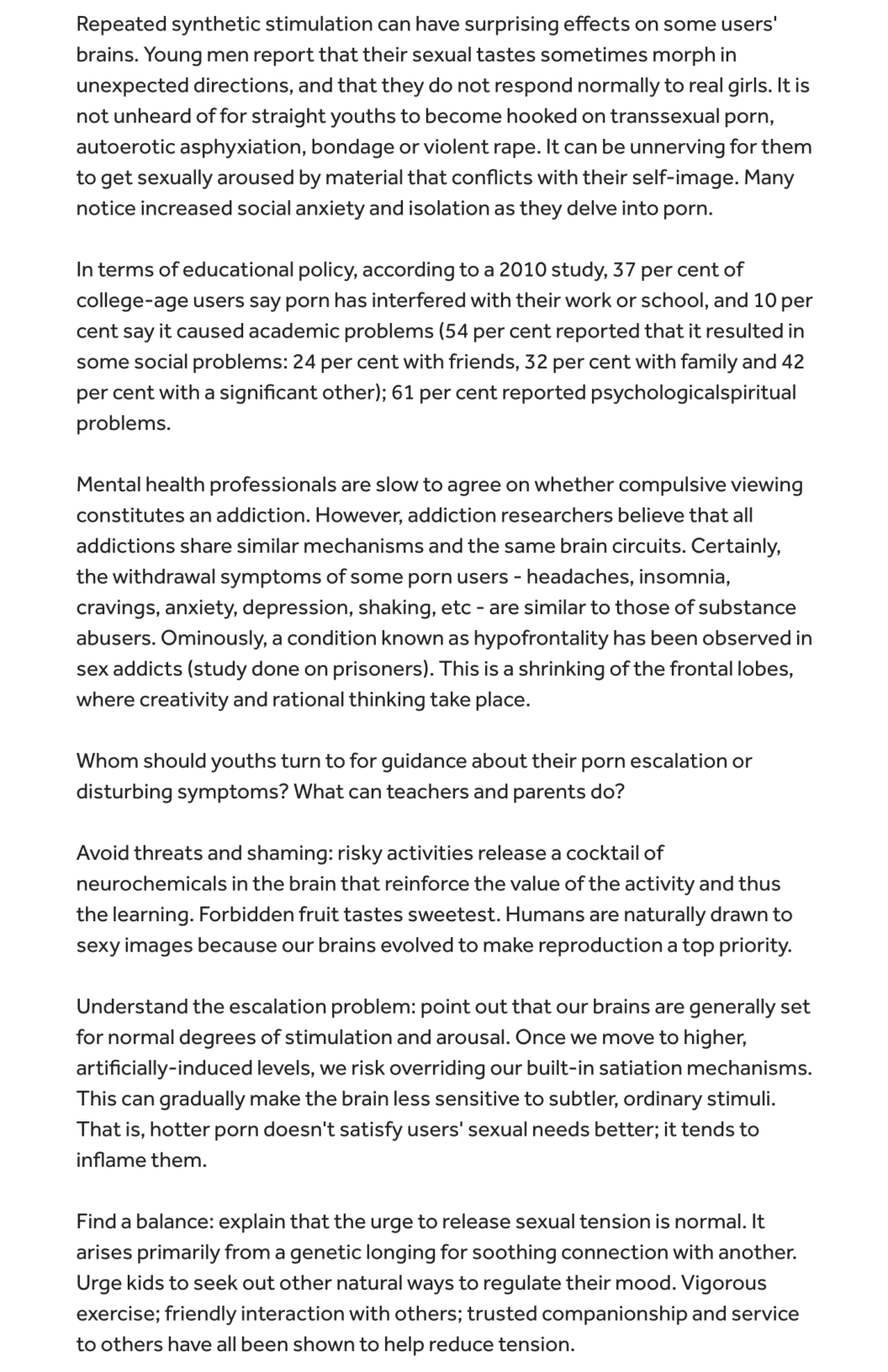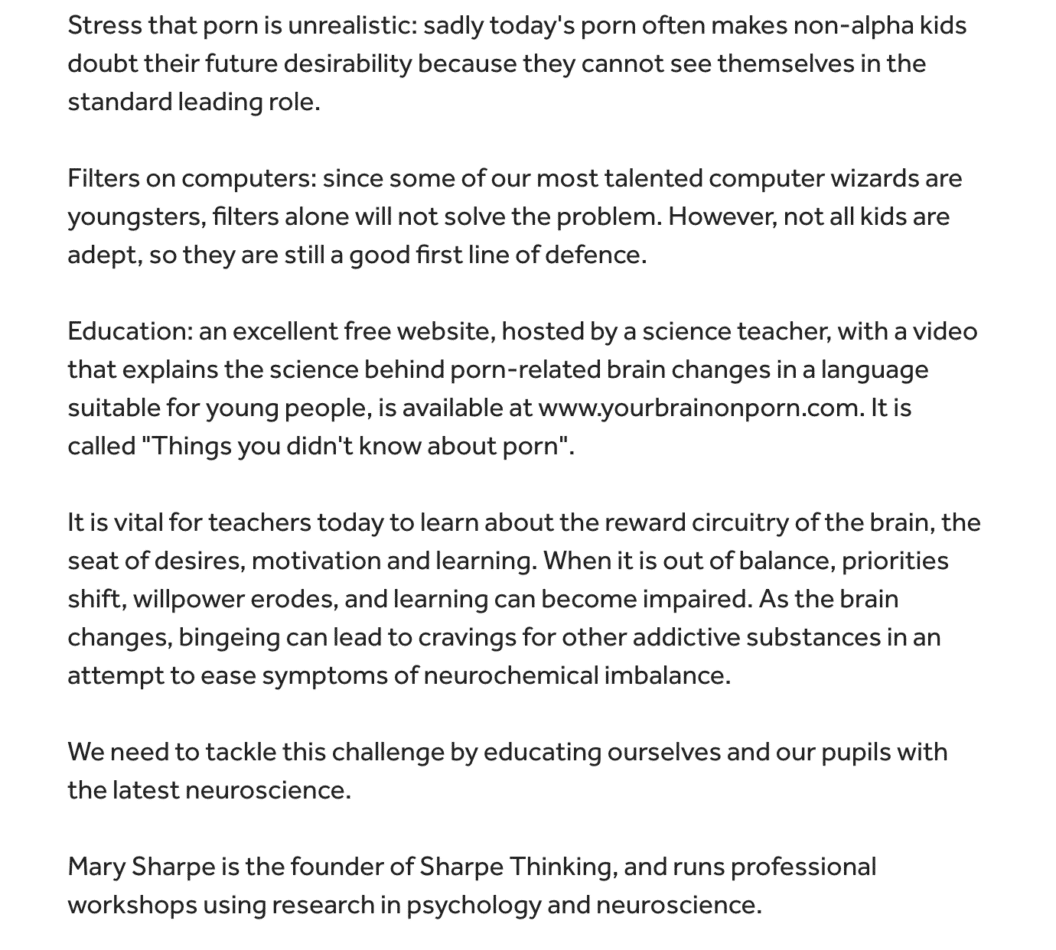Mary Sharpe in the Press Pre-TRF
Mary Sharpe’s idea for some kind of foundation to make the scientific research about sexual love publicly accessible first crystallised in 2006. That year Mary presented a paper on “Sex and Addiction” at the Third International Positive Psychology conference in Portugal. The internet was beginning to gain strength and students were finding it harder to resist the distraction. Streaming pornography became available ‘on tap’ from 2007 onwards. Mary and colleagues started to monitor the developments and issues related to health, relationships and criminality over the subsequent years. It was clear that the general public, influencers and decision makers needed easy access to the science that was beginning to emerge about the impact of the internet on our behaviour and life goals.
Mary Sharpe began working with the impact of pornography on love relationships several years before The Reward Foundation was established as a Scottish charity.
On this page we are digging onto the archives to provide an insight into the early thinking which led to Mary developing The Reward Foundation.
Over the coming months we will add more early material to illustrate our journey.
For additional background on Mary, see her biography here.
 War on hatred and addiction ‘must start in school’
War on hatred and addiction ‘must start in school’

Article by Hamish Macdonell, 11 June 2011.
The twin scourges of sectarianism and addiction are closely linked and should be explained to children as young as ten, according to a world expert on conflict resolution.
Ministers have given a cautious welcome to the call, from Mary Sharpe, an international advocate, for school pupils in Scotland to be taught about the dangers of sectarianism, as well as about the risks of drink and drugs. The two, she believes, are closely linked.
Ms Sharpe has recently returned to Scotland after researching the radicalisation of young Muslims for Nato. She wants to set up a centre for conflict resolution in Edinburgh which, she hopes, will be able to help the fight against sectarianism.
She believes that sectarianism in Scotland is inextricably bound up with the nation’s problems with addictions — particularly with alcohol — and she is adamant that both addiction and conflict resolution have to be in the curriculum if Scotland is to become a tolerant country.
Sectarianism
A spokesman for the First Minister, who will publish a Bill to tackle sectarianism next week, said that Ms Sharpe appeared to have a lot to offer the debate. “We would be very keen to take this farther and see what she has to say,” he said.
Alex Salmond has made the battle against sectarianism the immediate priority for his new administration and its first piece of legislation will be the anti-sectarianism Bill, which is due to be tabled before parliament later this week.
The Bill is expected to increase the maximum jail term for sectarian hate crimes from six months to five years, criminalise online postings of religious hatred and outlaw displays of sectarianism at football matches.
Mr Salmond turned on sectarianism after an escalation in the scale of trouble in and around Old Firm matches last season and after suspected bombs were sent to Neil Lennon, the Celtic manager, and two high-profile supporters of the club.
The First Minister linked Scotland’s alcohol problem with sectarianism when he set out the priorities for the new administration to the Scottish Parliament last month. Mr Salmond said: “Sectarianism travels hand in hand, at least in part, with another scourge of our safety and happiness — the booze culture.”
Key link
Ms Sharpe said she was delighted that Mr Salmond had identified the key importance of the link between addiction and sectarianism in his attempts to tackle the issue and she said she hoped that the election of the new SNP administration would provide an opportunity to take this work farther. “I am excited by the change in climate in Scotland and the willingness there now is for the country to face up to its demons,” she said.
Ms Sharpe claimed that Scotland has serious addiction problems with alcohol, nicotine, internet pornography, drugs, gambling and junk food — all of which, she insisted, had helped to push the country towards the top of global league tables for ill health, poverty and obesity. “Scotland has a particular problem. We live in a toxic culture,” she said.
She added that the only way the root causes of these issues could be tackled properly was to change the school curriculum and teach children about addiction and sectarianism from the age of ten. “We have to get into the schools.
“We have to teach the teachers so they can make the children aware of what is happening and then they can influence their parents,” she said.
She added: “I was brought up in the West of Scotland. I saw this when I was growing up and it is still around.”
Ms Sharpe said that although domestic violence tended to go up after Old Firm games, sectarianism itself was not the root cause; rather it was just a manifestation of other serious social problems, including alcoholism. And she added: “The challenge for the policy-makers is not to win the hearts and minds of our youngsters but to rescue them. That can only be done through education.”


 War on hatred and addiction ‘must start in school’
War on hatred and addiction ‘must start in school’


